CRT-P & CRT-D Implantation Procedure in Nagpur

CRT which is abbreviated as Cardiac Resynchronization Therapy is a medical treatment for a person with heart failure and some types of heartbeat disorders. CRT implantation is a process in which technological instruments known as CRT-P and CRT-D where p stands for pacemaker and d stands for defibrillator. These machines are developed to assist in enhancing the heart’s pumping capability and overall operation.
Procedure of CRT-P and CRT-D
- The implantation of CRT-P and CRT-D devices is conducted in a hygienic environment, usually in a specialized cardiac electrophysiology laboratory or operating space.
- Local anesthesia is administered to numb the implantation area, usually just below the collarbone.
- A tiny opening is created to make a pouch for the device.
- Thin insulated wires of lead are positioned into the blood vessels and governed to the heart of the patient.
- The machine which is a pacemaker or defibrillator is placed in the cavity in the soul, and later the wires are connected to it.
- The machine is experimented with to provide its functions accurately.
- The opening is closed, and the patient is observed for any instantaneous difficulties.
Benefits of CRT-P and CRT-D
- Both CRT-P and CRT-D machines can seriously enhance heart failure signs, such as tiredness, and lack of breath, and practice patience.
- CRT D system implantation also delivers security against premature cardiac death due to ventricular arrhythmias.
Why CRT-P and CRT-D is done?
CRT P implantation and CRT-D implantation are executed to help and handle typical heart disorders, specifically heart failure and some heartbeat disorders.
Risks involved in CRT-P and CRT-D
- Implantation operations have risks, including bleeding, sickness, and injury to blood containers or the heart.
- CRT-D machines have the possibility for difficulties associated with defibrillation, such as improper shocks or machine lead dislodgement.
General Benefits of Both CRT-P and CRT-D Implantation
Here are some general benefits of both CRT-P and CRT-D Implantation:
Personalized Therapy
Device settings can be adjusted and optimized to suit individual patient needs, ensuring personalized therapy.
Long-Term Management
With proper care and monitoring, these devices can provide long-term benefits in managing heart failure and specific arrhythmias.
Improved Survival Rates
Studies have shown that CRT-P and CRT-D devices can improve survival rates and reduce mortality in certain groups of heart failure patients.
Advancements in Technology
Ongoing technological advancements lead to smaller devices, longer battery life, and improved algorithms for better therapy delivery and patient outcomes.
What Need To Do After the CRT-P & CRT-D Implantation?
Patients mandate regular follow-up visits to observe the device’s position, modify settings, and confirm the patient’s overall health.
Traditional remote monitoring abilities are known for early detection of problems and machine programming adjustments.
Our Medical Services

ECG
An electrocardiogram (ECG) is one of the only and speediest tests utilized to survey the heart. Anodes (small, plastic patches that stick to the skin) are set at certain spots on the chest, arms, and legs.
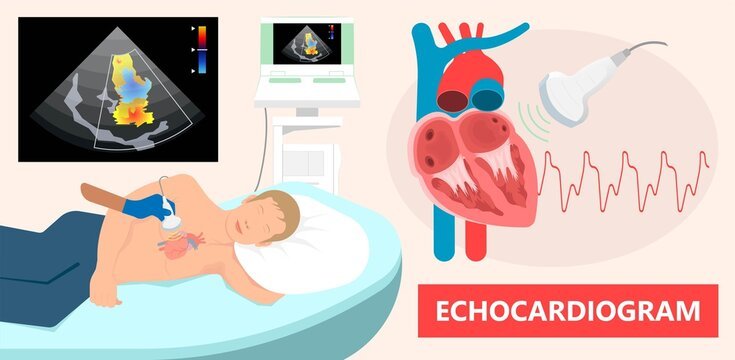
2D Echo
A two-dimensional Echocardiogram or 2D Echo test is a demonstrative test that employs ultrasound waves to evaluate the working of the heart.

Holter Monitoring
Holter monitoring measures your heart activity over an extended period, usually between 24 and 48 hours. Basically, a Holter Monitoring is a portable device which records the heart’s electrical signals.

BP Monitoring
Each time your heart beats, it pumps blood into your arteries. A blood pressure measurement may be a test that measures the force (pressure) in your arteries as your heart pumps.

Coronary Angiography
Coronary angiography diagnoses and evaluates coronary artery blockages. Contrast dye is injected into arteries, enabling X-ray imaging to visualize blood flow and identify narrowing or blockages.
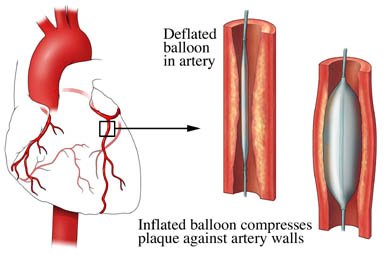
Coronary Angioplasty
Coronary angioplasty is a minimally invasive technique of abdominal artery angioplasty, which is used to treat coronary arteries that are obstructed or constricted and it is the most appropriate technique used by doctors for the treatment.
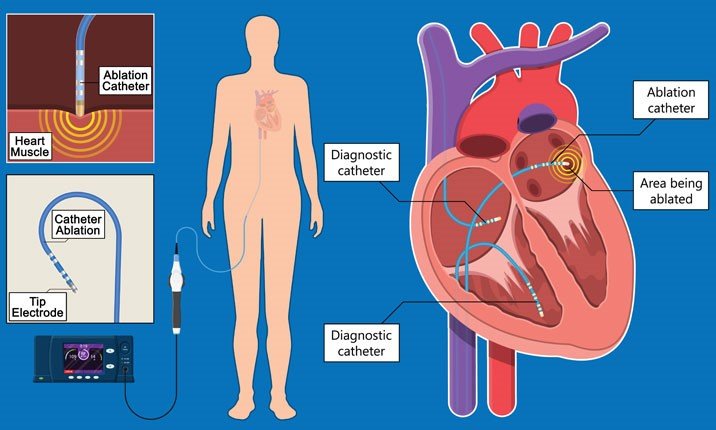
Electrophysiology Study
An Electrophysiology Study (EP study) is a test utilized to assess the heart’s electrical framework and check for abnormal heart rhythms. The natural electrical impulses coordinate the contractions of different parts of the heart.
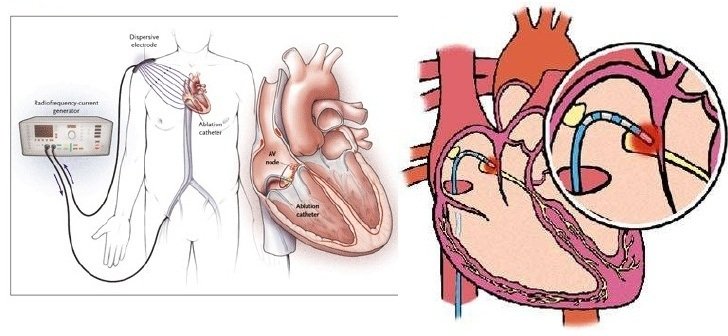
Radiofrequency Ablation
Radiofrequency Ablation (RFA) is a minimally invasive medical procedure that uses high-frequency electrical currents to generate heat, effectively destroying abnormal tissue or cells.
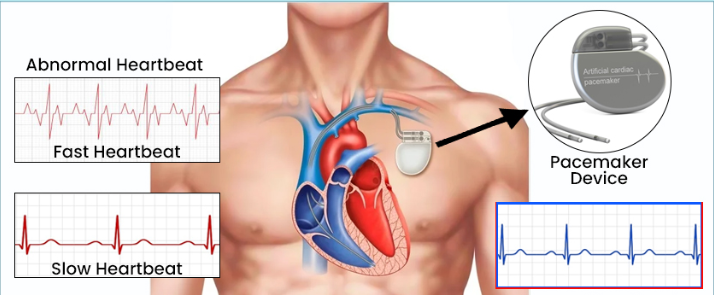
Pacemaker Implantation
Pacemakers are medical devices designed to support and regulate the electrical system of the heart, ensuring it functions properly. This medical procedure entails the insertion of a small device into the chest region.

ICD Implantation
An Implantable Cardioverter-Defibrillator (ICD) is a life-saving device that plays a crucial role in monitoring and regulating heart rhythms. It consists of a pulse generator and leads implanted in the heart.

Best Cardiologist in Nagpur
Introducing Dr. Chetan Rathi, a distinguished Cardiologist in Nagpur, whose eminence transcends the realm of medical proficiency.

Valvuloplasty
A balloon mitral valvuloplasty is a process to extend a restricted heart valve and improve blood flow. The heart valves handle how blood drives through the heart.
Our Achievements in Numbers
Happy Patients
Years of experience
Specialisations
Hospital Associations
Awards & Recognition
Patient Testimonials
Dr Chetan Rathi sir is good cardiologist. I visited him many times with my family and friends for consult about issues related with cardiology.
Our Videos




Our Blog
 How Does Vitamin D Affect Your Heart?
How Does Vitamin D Affect Your Heart?
Vitamin D is much more than the “sunshine vitamin”; it is very important in the whole body of heart health. It works from bone health to an enhanced immunity function. Scientific studies show that this regulates cardiovascular health; therefore, it is a very great factor in preventing heart diseases and maintaining optimal heart function. This… Continue reading How Does Vitamin D Affect Your Heart?
Read More Understanding Diabetes: Causes, Symptoms, and Management
Understanding Diabetes: Causes, Symptoms, and Management
Diabetes mellitus is a chronic condition that affects the way your body processes glucose, or sugar. Unchecked, diabetes mellitus can lead to serious complications, such as heart disease and kidney damage, as well as nerve problems. Understanding the types of diabetes, the symptoms of diabetes, the causes of diabetes, and how to take care of… Continue reading Understanding Diabetes: Causes, Symptoms, and Management
Read More What Is Syncope and How Can It Be Prevented and Treated?
What Is Syncope and How Can It Be Prevented and Treated?
Syncope, also known as fainting, is a short-lived loss of consciousness which primarily results from a sudden decrease in blood flow to the brain. Although fainting can be alarming, syncope is generally not a serious condition and can be caused by a variety of reasons; however, it may indicate an underlying serious medical condition in… Continue reading What Is Syncope and How Can It Be Prevented and Treated?
Read More



